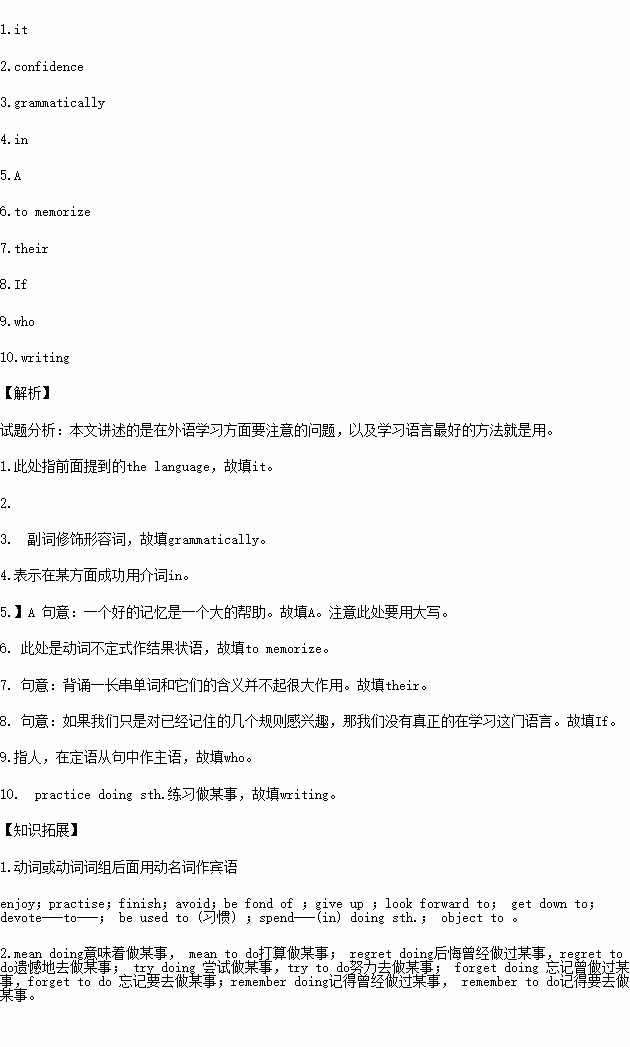题目内容
阅读下面材料,在空白处填入适当的内容(1个单词)或括号内单词的正确形式。将答案填写在答题卡的相应位置。
In order to know a foreign language thoroughly, four things are necessary. Firstly, we must understand the language when we hear 1. spoken. Secondly, we must be able to speak it ourselves correctly with 2. (confident) and without hesitation. Thirdly, we must be able to read the language, and fourthly, we must be able to write it. We must be able to make sentences that are 3. (grammatical) correct.
There is no easy way to success 4. language learning. 5. good memory is a great help, but it is not enough only 6. (memorize) rules from a grammar book. It is not much use learning by heart long lists of words and 7. meanings, studying the dictionary and so on. We must learn by using the language. 8. we are satisfied with only a few rules we have memorized, we are not really learning the language. “Learn through use” is a good piece of advice for those 9. are studying a new language. Practice is important. We must practise speaking and 10. (write) the language whenever we can.
 名校课堂系列答案
名校课堂系列答案
